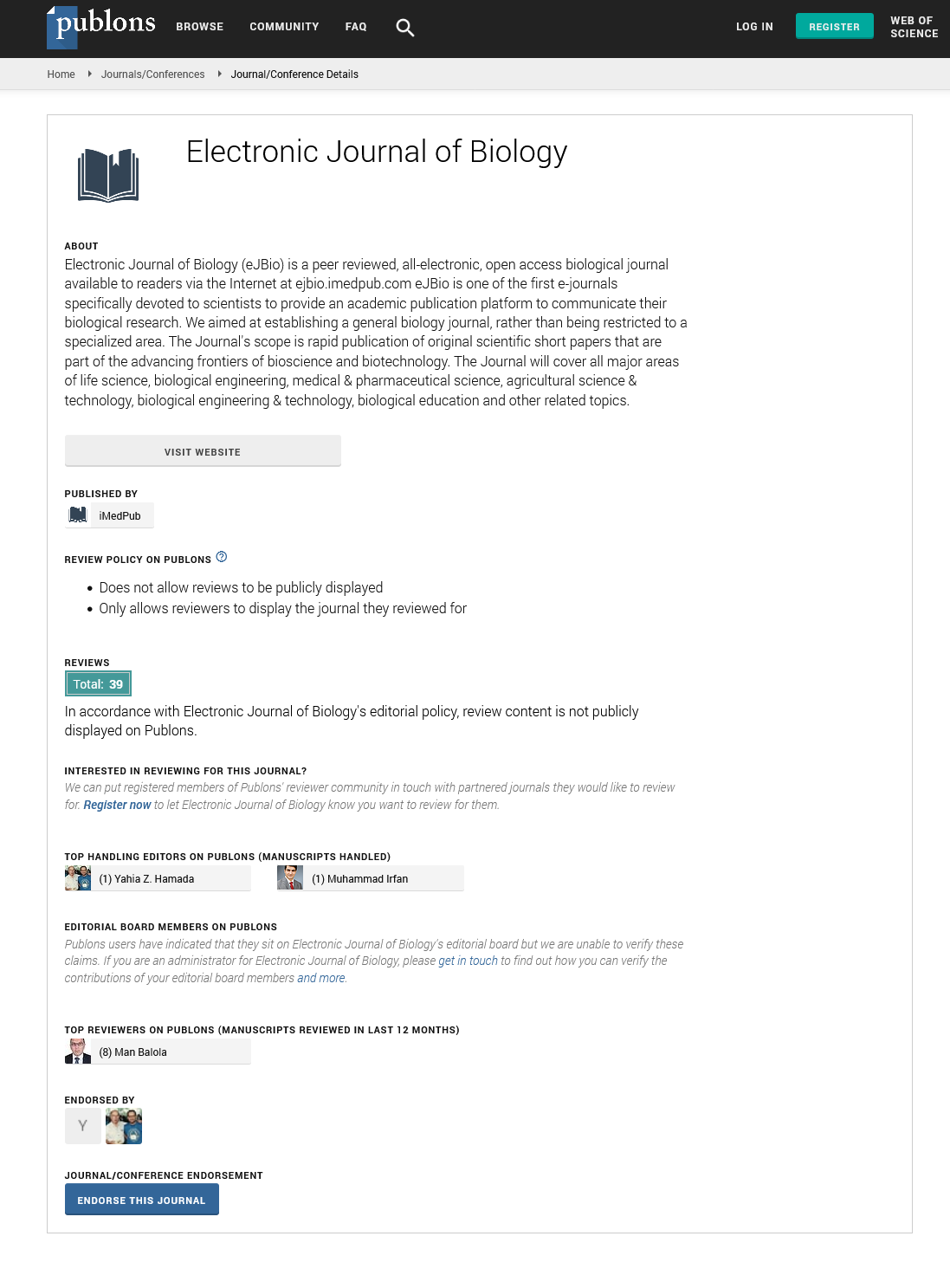Abstract
Characterization of Hydrocarbon-Utilizing Bacteria Associated with Kenaf (Hibiscus cannabinus L.) Plant Grown in a Niger Delta Soil
Hydrocarbon Utilizing Bacteria (HUB) were isolated at the juvenile and maturity stages from the core and rhizosphere of Tianung 1, Tianung 2 and Cuba 108 accessions of Kenaf (Hibiscus cannabinus) plant grown in a hydrocarbon unimpacted soil in the Niger Delta Area. Standard culture dependent techniques were used for the enumeration of heterotrophic and hydrocarbon-utilizing bacteria while PCR amplification of a fragment of the 16S rRNA bacterial gene and sequencing was done to identify the HUB isolates to species level. Sequences obtained were deposited at the Gen Bank of the National Centre for Biotechnology Information (NCBI) and accession numbers were obtained. The rhizospheric heterotrophic bacterial counts between plants 1 and 2 of the various accessions ranged from 1.41 × 107 to 2.4 × 108 cfu/g at the juvenile stage and 1.44 ×107 to 6.5 × 108 at maturity, while rhizospheric hydrocarbon utilizing bacterial counts ranged from 3.0 × 107 to 4.7 × 107 (cfu/g) (juvenile stage) and 2.7 × 107 to 5.0 × 107 (cfu/g) (maturity). One way Analysis of Variance showed significant difference (P<0.05) only between hydrocarbon utilizing bacterial counts and total heterotrophic bacterial counts for plant 1 only. Thirteen (13) HUB species were identified: Providencia vermicola A10-01, Providencia rettgeri B10_04, Providencia rettgeri D04-10, Pseudomonas aeruginosa D10-10, Providencia vermicola F10- 16, Providencia rustigianii H10-22, Lysinibacillus fusiformis B11-05, Lysinibacillus sphaericus C11- 08, Exiguobacterium aurantiacum F03-18 Klebsiella pneumoniae G10-19 Stenotrophomonas maltophila A04-01, Pseudomonas aeruginosa F04-16, and Lysinibacillus sphaericus E11_14. This study provided novel information on indigenous hydrocarbon utilizing bacteria associated with Hibiscus cannabinus suitable as inoculants for in situ bioremediation.
https://transplanthair.istanbul
https://hairclinicturkey.co
https://hairclinicistanbul.co
https://besthairtransplant.co
https://hairtransplantistanbul.co
Author(s):
Ashikodi AO, Abu GO
Abstract | Full-Text | PDF
Share this

Google scholar citation report
Citations : 5001
Electronic Journal of Biology received 5001 citations as per google scholar report
Electronic Journal of Biology peer review process verified at publons
Abstracted/Indexed in
- Google Scholar
- China National Knowledge Infrastructure (CNKI)
- CiteFactor
- Electronic Journals Library
- Zoological Records
- WorldCat
- Proquest Summons
- Publons
- MIAR
- Openaccessarticles.com
- Secret Search Engine Labs
Open Access Journals
- Aquaculture & Veterinary Science
- Chemistry & Chemical Sciences
- Clinical Sciences
- Engineering
- General Science
- Genetics & Molecular Biology
- Health Care & Nursing
- Immunology & Microbiology
- Materials Science
- Mathematics & Physics
- Medical Sciences
- Neurology & Psychiatry
- Oncology & Cancer Science
- Pharmaceutical Sciences


